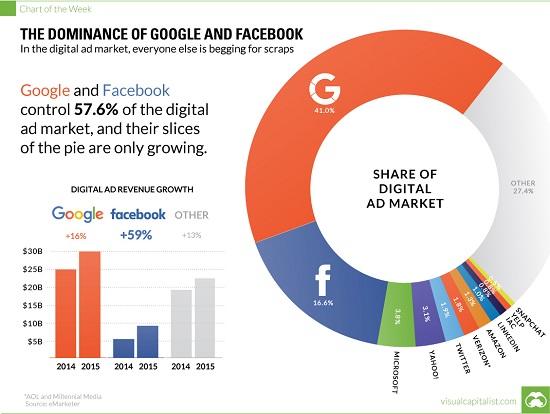The Company Store is open, buy whatever you want on easy credit, and don’t forget to take an approved narrative with you.
I’ve been discussing the neocolonial-plantation structure of the U.S. economy since 2008, and now this model has reached perfection in social media’s Plantation of the Mind. Once you’re firmly enmeshed in this social media Plantation, you lose sight of the fact that there’s a larger world outside the plantation: social media platforms aren’t exploitative plantations in the World Wide Web/Internet, they are the Internet as far as their users are concerned.
Since I spent some of my youth in a classic Plantation town (and worked on the plantation as a laborer in summer), the concept of a Plantation Economy is not an abstraction to me, but a living analogy of the way our economy works.
In the classic Plantation, everything is managed by those in charge to benefit the owners. Workers are forced to buy their necessities at The Company Store, and since the entire town and plantation is owned by the corporation, there’s no private ownership of land or housing; everyone is a serf, beholden to the owners, and since costs are artificially high at The Company Store (due to the lack of competition), the serfs have to go into debt to survive: they become debt-serfs.
In the Plantation Economy, the Company suppresses any innovation that threatens its monopoly and the state enforces whatever means the Corporation deploys: buying up patents and small companies, predatory pricing to bankrupt competitors, etc.
The Plantation Economy is a mono-culture of large corporations and their partner in rentier skimming, the state. Our economy is a state-cartel finance-debt system; it’s only capitalist on the margins, that is, in the fringes that aren’t profitable enough for corporations to control.
The core feature of this Plantation Economy is the privileges of accumulating capital are all in the hands of the state-cartel elites. The foundation of classical capitalism is the accumulation of capital, which in our era is not just cash, factories, mines, etc.–financial and industrial capital– but knowledge capital: intellectual property, knowledge of processes, creation and control of content, research and development, control of information streams (that is, maintaining information asymmetry) and so on.
One of the key concepts in the Survival+ critique is the politics of experience. This is an elusive concept because what we take for granted is invisible to us, and we have to go back in time, so to speak, to rediscover a history in which the experience of daily life was quite different from the present.
Today, we accept it as “normal” that marketing worms into every once-private area of our lives. Not that long ago, adverts and marketing were limited to print media (newspapers and magazines) and TV–fundamentally passive media that you could opt out of by setting the paper aside or turning off the TV.
The key concept in all marketing now is supremely pernicious: any advert or campaign which reaches deep into the last refuges of privacy is considered highly valuable. This is of course the raison d’etre of social media: to weave highly profitable marketing into every process we consider essential.
To perfect this colonization of the mind, social media has persuaded users that they no longer need unfettered access to the entire World Wide Web/Internet: we’ll give you everything you want right here on our Plantation of the Mind.
Including, of course, what you should think, feel and buy. Since Google dominates “search,” and since Google has complete control over what is “found” in searches and what is buried and rendered invisible, i.e. whatever is “not found,” then our access to the entire Web is limited in ways we cannot see or understand, because the process and filters are invisible to us.
Once you control the politics of experience, the user isn’t even aware that what they now consider “obvious” has been molded by the plantation owners to maximize their private profits. In social media’s Plantation of the Mind, users are assured they have complete access to everything that is “fact” and “safe,” when in reality everything they see has been filtered to the benefit of the Plantation owners and their political allies in the state hierarchy.
In a democracy, voters must be trusted to make assessments and judgments on their own, i.e. as adults. They must be trusted to realize that marketers are everywhere, attempting to sell something or other, not just goods and services but narratives, which benefit those in power or threaten those in power.
They must be trusted to understand the difference between their own private stake in political decisions and the broader public good.
Alas, the voters are no longer trusted by the elites. They are chattel on the plantation, and have to be managed and coerced for their own good. Enter the perfect tool to do so, social media’s Plantation of the Mind.
The entire purpose of social media’s Plantation of the Mind is to maximize profits by limiting user’s experience and awareness to what is unthreatening to the corporate-state elites. Rather than the old model in which the Web was a free-for-all which included all sorts of content which required users to sort the wheat from the chaff, social media’s Plantation of the Mind seeks to sanitize all that chaos into “approved content” which users aren’t even aware has been carefully selected for their consumption by hidden processes and filters.
The intent of those filters are also hidden, as is the selection process of those filters.
Who gets to decide what’s filtered out “for our own good”? Who gets to decide what is “our own good”?
Welcome to social media’s Plantation of the Mind. The Company Store is open, buy whatever you want on easy credit, and don’t forget to take an approved narrative with you. Don’t worry, we’ve planted that in your mind without you even realizing it–for your own good, of course.
Are Facebook and Google the New Colonial Powers? (September 18, 2017)
Loving Our Servitude in America’s Plantation Economy (February 10, 2017)
Colonizing the Plantation of the Mind (August 25, 2010)

